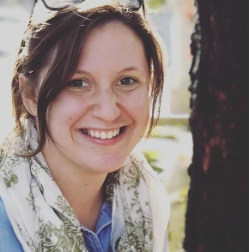Dr. Thomas Frazier, Ph.D is a clinical psychologist and multidisciplinary research team leader who has devoted his work to developing and refining measures to enhance the lives of individuals with autism and related conditions. With 20 years of experience, Dr. Frazier has redefined screening and diagnostic methods, studied new and existing developmental and behavioral interventions, and created new online measures for remote monitoring focused on promoting easier and cheaper access to individualized clinical care.
Dr. Frazier’s extensive experience has led him to make meaningful contributions to the field of developmental disabilities research including authoring over 130-peer reviewed papers, collaborating with researchers across the world, and he has been principal investigator of several grants totalling more than $2 million dollars in funding from several generous organizations including the National Institutes of Health, the Simons Foundation Autism Research Initiative, Autism Speaks, the PTEN Research Foundation, the SynGAP Research Fund, ADNP Kids, and the Malan Syndrome Foundation.
Dr. Frazier has worked with key stakeholders in research today and continues to build relationships with practitioners and organizations around the world.
Key Collaborations
-
Cleveland Clinic
-
MetroHealth
-
Stanford University
-
Boston Children’s Hospital
-
Nationwide Children’s Hospital

Dr. Thomas Frazier, Ph.D
Clinical Psychologist
Professor of Psychology

Katie Huba, MS, BCBA, COBA, LBS
Research Coordinator
khuba@jcu.edu
Key Collaborators and Co-Investigators
Charis Eng, MD, PhD
Cindy Kubu, PhD
Mirko Uljarevic, MD, PhD
Antonio Hardan, MD
Mustafa Sahin, MD, PhD
Student Research Assistants
Celine Akouri
Ethan Crowley
Sophia Wohlwend
Claire Schuppel
Cassandra Rose
Nicolas Flores
Samson Speeth
Thomas Fogal
Project Title: A Big Data Approach Toward the Development of New Quantitative Autism
Supporting Organizations / Foundations: National Institutes of Health (NIH)
Summary: Most Autism spectrum disorder (ASD) focused assessments are influenced by a range of factors. Adjustments for these factors could enhance key research and clinical practices. The primary aim of this project is to enhance the performance of current measures.
Currently Enrolling: No
Project Title: Validation of an Online Neurobehavioral Evaluation Tool Across Large Autism Cohorts
Supporting Organizations / Foundations: Simons Foundation Autism Research Initiative (SFARI)
Summary: Research of Autism Spectrum Disorder (ASD) and other associated neurogenetic syndromes require the ability to quickly and efficiently collect neurobehavioral information. The need for online, objective measures that can be used to characterize and monitor key neurobehavioral processes is crucial. The primary aim of this project is to conduct a large-scale validation study of an online neurobehavioral evaluation tool.
Currently Enrolling Participants: Yes. Please refer below for more information on the eligbility for project participation or contact us today to speak to our research team directly!
Project Title: Extended Longitudinal NET project
Supporting Organizations / Foundations: WDR26 Foundation and SYNGAP Found
Summary: As the lab continues to work towards the goals of developing and validating clinical measures, its focus has turned to ensuring these new measures be as effective as in many genetic syndrome groups as possible as well as ensuring the validity of these measures hold true across time. The primary aim of the Extended Longitudinal - NET Project is conduct a large-scale validation study of the previously developed and validated neurobehavioral evaluation tool (NET) and expand upon informant surveys. The focus of this project is to validate these measures across longer time periods as well as new genetic groups.
Currently Enrolling Participants: Yes. Please refer below for more information on the eligbility for project participation or contact us today to speak to our research team directly!
- Frazier TW, Busch RM, Klaas P, Lachlan K, Jeste S, Kolevzon A, Loth E, Harris J, Speer L, Pepper T, Anthony K, Graglia JM, Delagrammatikas CG, Bedrosian-Sermone S, Smith-Hicks C, Huba K, Longyear R, Green-Snyder L, Shic F, Sahin M, Eng C, Hardan AY, Uljarević M. Development of webcam-collected and artificial-intelligence-derived social and cognitive performance measures for neurodevelopmental genetic syndromes. Am J Med Genet C Semin Med Genet. 2023 Aug 3;. doi: 10.1002/ajmg.c.32058. [Epub ahead of print] PubMed PMID: 37534867; NIHMSID:NIHMS1923134.
- Frazier TW, Busch RM, Klaas P, Lachlan K, Jeste S, Kolevzon A, Loth E, Harris J, Speer L, Pepper T, Anthony K, Graglia JM, Delagrammatikas C, Bedrosian-Sermone S, Beekhuyzen J, Smith-Hicks C, Sahin M, Eng C, Hardan AY, Uljarević M. Development of informant-report neurobehavioral survey scales for PTEN hamartoma tumor syndrome and related neurodevelopmental genetic syndromes. Am J Med Genet A. 2023 Apr 12;. doi: 10.1002/ajmg.a.63195. [Epub ahead of print] PubMed PMID: 37045800
- Frazier TW, Dimitropoulos A, Abbeduto L, Armstrong-Brine M, Kralovic S, Shih A, Hardan AY, Youngstrom EA, Uljarević M. The Autism Symptom Dimensions Questionnaire: Development and psychometric evaluation of a new, open-source measure of autism symptomatology. Dev Med Child Neurol. 2023 Jan 11;. doi: 10.1111/dmcn.15497. [Epubahead of print] PubMed PMID: 36628521.
- - Frazier TW, Whitehouse AJO, Leekam SR, Carrington SJ, Alvares GA, Evans DW, Hardan AY, Uljarević M. Reliability of the Commonly Used and Newly-Developed Autism Measures. J Autism Dev Disord. 2023 Apr 5;. doi: 10.1007/s10803-023-05967-y. [Epub ahead of print] PubMed PMID: 37017861.
- Lord C, Brugha TS, Charman T, Cusack J, Dumas G, Frazier T, Jones EJH, Jones RM, Pickles A, State MW, Taylor JL, Veenstra-VanderWeele J. Autism spectrum disorder. Nat Rev Dis Primers. 2020 Jan 16;6(1):5. doi: 10.1038/s41572-019-0138-4. Review. PubMed PMID: 31949163.
- Public Bibliography : https://www.ncbi.nlm.nih.gov/myncbi/thomas.frazier.1/bibliography/public/
Summary: Research of Autism Spectrum Disorder (ASD) and other associated neurogenetic syndromes require the ability to quickly and efficiently collect neurobehavioral information. The need for online, objective measures that can be used to characterize and monitor key neurobehavioral processes is crucial. The primary aim of this project is to conduct a large-scale validation study of an online neurobehavioral evaluation tool.
We are currently seeking parent - child participants for our in-lab cohort.
Eligibility Requirements: A parent (age 18+) and child (age 3-8) participant pair (both children with and without an ASD diagnosis can participate)
Participation Expectations: The participating parent will be asked to complete an online informant survey about their participating child. This survey will take approximately 35 minutes to complete and parents can complete the survey at their convenience using a phone, tablet, or computer.
The participating child will be asked to complete a series of in-person and online assessments with the help of the lab's clinical team and / or parent. The in-person assessments will take approximately 60 minutes to complete. The online assessment will take approximately 20 minutes to complete.
This is a one-time participation expectation / no follow ups required.
Compensation: Participating participant pairs will receive up to $200 in compensation for this project.
Summary: Research of Autism Spectrum Disorder (ASD) and other associated neurogenetic syndromes require the ability to quickly and efficiently collect neurobehavioral information. The need for online, objective measures that can be used to characterize and monitor key neurobehavioral processes is crucial. The primary aim of this project is to conduct a large-scale validation study of an online neurobehavioral evaluation tool.
Parents and children (ages 3-17) enrolled in ResearchMatch through SFARI are eligible for enrollment in this project.
Eligibility Requirements: A parent (age 18+) and child (age 3-17) participant pair (both children with and without an ASD diagnosis can participate) enrolled in ResearchMatch through the SFARI.
Participating Expectations: The participating parent will be asked to complete an online informant survey about their participating child. This survey will take approximately 35 minutes to complete and parents can complete the survey at their convenience using a phone, tablet, or computer.
The participating child will be asked to complete an online assessment. The online assessment will take approximately 20 minutes to complete. The webcam measures aim to measure thinking skills related to social attention, processing speed, language level, and memory skills.
Participants will be asked to complete their assigned assessments at 3 timepoints (initially, 1-month follow up, 6-month follow up).
Compensation: Participating participant pairs will receive up to $120 in Amazon gift cards for compensation for this project.
Summary: The primary aim of the Extended Longitudinal - NET Project is conduct a large-scale validation study of the previously developed and validated neurobehavioral evaluation tool (NET) and expand upon informant surveys. The focus of this project is to validate these measures across longer time periods as well as new genetic groups.
Eligibility Requirements: A parent or close inforant (age 18+) and person ( age 3-60) with a WDR26 diagnosis OR a SYNGAP Diagnosis
Participating Expectations: The participating parent will be asked to complete an online informant survey about their participating child. This survey will take approximately 35 minutes to complete and parents can complete the survey using a phone, tablet, or computer.
The participating persons with a WDR26 or SYNGAP diagnosis will be asked to complete a set of webcam performance assessment. The online assessment will take approximately 20 minutes to complete.
Participants will be asked to complete their assigned assessments at 5 timepoints (initially, 3-month follow up, 6-month follow up, and 9-month follow up, and 12-month follow up).
Compensation: Participating participant pairs will receive up to $200 in Amazon gift cards for participating in this project.